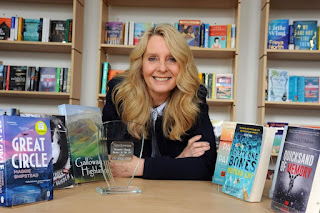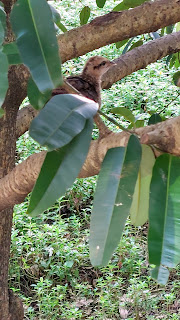 |
Brandon Wade/Associated Press
|
Jeff––Saturday
On
Thursday, I read an article in The New York Times by Ruth Graham, its religion,
faith and values national correspondent, addressing antisemitic episodes having
reached new highs in the U.S. It came as
no more a surprise to me than did an opinion piece appearing soon after International
Holocaust Remembrance Day (January 27, 2023) in Greece’s paper of record, Ekathimerini,
authored by Tom Ellis, Editor-in-Chief of its English language version, and captioned "Antisemitism in Greece."
Taken together they present a distinctly unsettling present, but
in their expression offer hope that history shall not repeat itself.
I’ve reproduced the two articles below—with a limited edit in length
to Ms. Graham’s article, available here in its
entirety.
From
The New York Times:
 |
Ruth Graham
|
The
number of antisemitic incidents in the United States last year was the highest
since the Anti-Defamation League began keeping track in 1979, the Jewish
advocacy group announced on Thursday.
In
a new report, the A.D.L. counted 3,697 incidents
throughout the United States in 2022, a 36 percent rise from the year before. A
majority were characterized as harassment, including online, but the tally also
included 111 assaults and more than 1,200 occasions of vandalism.
The
report is the latest indication that antisemitism in the United States is on
the rise, a trend that has been reflected in American culture and politics,
sending fresh waves of alarm through Jewish communities. It also mirrors data
gathered by the federal government, as well as a separate academic study
tracking incidents of bias against many religious groups.
Anti-Jewish enmity has been expressed in openly antisemitic leaflets and graffiti, or brazen physical
attacks, especially on visibly Orthodox Jews. But it is also palpable in
harder-to-track discourse online and in troubling public rhetoric from celebrities like Ye,
formerly known as Kanye West, who tweeted last fall that he would “go death con
3 On JEWISH PEOPLE.” And right-wing politicians and commentators have stoked fears of “replacement theory,” the
conspiracist idea that elites, sometimes manipulated by Jews, want to “replace”
white Americans. The cumulative effect is an atmosphere in which threats, slurs and conspiracy theories brew online
but are increasingly visible offline, too.
“We’ve seen antisemitism normalized in ways that would have
been unimaginable a few years ago,” said Jonathan Greenblatt, the chief
executive and national director of the A.D.L. “If people see conspiracies
behind every misfortune, it doesn’t take long for them to look at the Jews and
say they’re the problem.” …
This is the third time in the past five years that the A.D.L. has
declared its count a record high. Five states — New York, California, New
Jersey, Florida and Texas — account for more than half of the total incidents.
“We’re in a new era for antisemitism,”
said Brian Levin, the director of the Center for the Study of Hate and
Extremism at California State University, San Bernardino, which monitors hate
crimes in American cities. “We’re now seeing Jews becoming a default.” ….
From Ekathimerini:
 |
Tom Ellis
|
Along with the rest of the world, Greece last week paid tribute
to the memory of the victims of the Holocaust. Events were held, documentaries
screened, interviews published and lectures given, many of which were
emotionally laden with memories of the terrible ordeals of World War II that
led to the eradication of almost 90% of the country’s Jews.
The heroism and determination of many Greeks who resisted
bravely and helped Jews survive was also highlighted, with the example of
Archbishop Damaskinos standing out, along with those of the Metropolitan Bishop
of Zakynthos Chrysostomos and the Ionian island’s mayor, whose actions are
taught in schools in Israel and should serve as the bar against which we judge
Hellenism’s relationship with the Jewish community.
In that vein, the percentage of the vote secured by Golden Dawn
in the 2015 elections that got it into Parliament is a dark chapter in Greece’s
modern political history that must be prevented from being reopened.
The neo-Nazi party’s popularity was obviously the result, to a
significant degree, of the financial crisis, anger with the system and with
endemic corruption and the injustices and inequalities that emerge in
day-to-day life. But this reaction cannot be expressed by voting for a party
that espouses the Nazi ideology and symbols; certainly not in Greece, given its
experience in WWII, the destruction and pain rained on the country during the
German occupation, and the brave battles that were fought against Hitler.
Holocaust Remembrance Day came as an opportunity to think long
and hard about such things. It is not just the extreme version of antisemitism
expressed by Golden Dawn and its offshoots that should be of concern, but also
the habit – which has, admittedly, been stronger in the past – of judging the
Jewish people by the actions of the politicians of the state of Israel. Someone
can disagree with Israeli government policy without becoming an antisemite. The
Israeli people themselves are harsh judges of their governments through their
many and diverse political parties.
That said, at a time when antisemitism appears to be on the rise
in many parts of the world, younger Greeks appear to shun two basic elements of
“Greek antisemitism:” The first is the conspiracy theory that Greeks are a
nation that has been wronged by various malevolent forces, and the Jews bear in
some conspicuous way some responsibility for this, and the second is a tendency
to mix the justifiable reaction to specific policies by the Israeli political
leadership, with – and this is definitely not justified – lashing out against
Jews simply because they are Jews.
At the same time, the deepening cooperation between Greece and
Israel – bilaterally and also trilaterally with Cyprus – is not just
geopolitically desirable. It also brings the two peoples closer and in doing so
deals another blow against antisemitism.
 |
Holocaust Memorial - Alexandros Avramidis/In Time News
|
––Jeff







.webp)















































